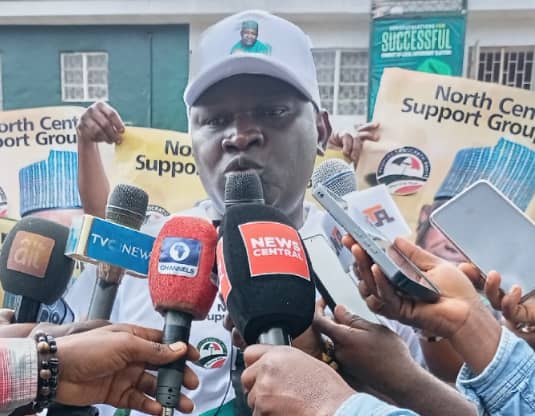By Diri Glory Idaerefaa
The Middle East has long been shaped by deep-rooted rivalries, religious divisions, and competing strategic ambitions. At the center of this volatile landscape lies the enduring hostility between Iran and Israel—a conflict that not only defines regional security dynamics but also draws in global powers. Chief among these is the United States, whose involvement has remained pivotal for decades, driven by alliance commitments, security concerns, and strategic influence. As a superpower, Washington’s policies often determine whether tensions in the region escalate or de-escalate.
The U.S. maintains a long-standing alliance with Israel, anchored in shared democratic values, mutual security interests, and strong domestic political support. Organizations such as the American Israel Public Affairs Committee (AIPAC) help reinforce this bond, ensuring consistent U.S. political and military backing. Each year, Washington provides Israel with roughly $3.8 billion in military aid, along with intelligence cooperation and advanced defense technologies—safeguarding Israel’s military superiority in the region.
In contrast, U.S.–Iran relations have remained hostile since the 1979 Islamic Revolution, which ended decades of pro-Western alignment. Since then, bilateral ties have been defined by sanctions, proxy confrontations, and mutual distrust. Iran’s support for groups such as Hezbollah and Hamas, coupled with its nuclear ambitions, has heightened U.S. concerns. Thus, the United States is not a neutral actor in the Iran–Israel rivalry; its policies influence regional outcomes, global diplomacy, and even oil market stability.
Historically, Iran and Israel briefly cooperated against common threats like Iraq in the 1980s, but the post–Cold War era solidified their opposition. Iran has positioned itself as the defender of the Palestinian cause, promoting what it calls an “axis of resistance”—comprising Hezbollah in Lebanon, Hamas in Gaza, Shi’a militias in Iraq, and Yemen’s Houthi movement. Through these groups, Tehran extends its influence across the region while countering both U.S. and Israeli interests.
For Israel, Iran’s growing regional footprint represents an existential threat. Events such as the 2002 Karine A arms shipment, the 2006 Lebanon War, and former Iranian President Mahmoud Ahmadinejad’s Holocaust denial reinforced Israeli fears of aggression. However, Iran’s nuclear program remains the most urgent concern, with fears that it could lead to a regional arms race or direct confrontation.
Tensions peaked between 2024 and 2025, when reports of Iranian nuclear non-compliance prompted Israeli preemptive strikes on Iranian nuclear facilities. In retaliation, Iran launched missile attacks—including one on a medical center in Beersheba that injured over 240 civilians. Israel responded with airstrikes on Natanz, Arak, Khondab, Tehran, and Isfahan, resulting in significant casualties. On June 22, 2025, the United States intervened directly with *“Operation Midnight Hammer,” deploying bombers and missiles against Iranian targets. This marked a historic shift from proxy tensions to open conflict, raising fears of a wider regional war.
U.S. policy underpins much of this dynamic. Since the 1960s, Washington has provided Israel with more than $150 billion in economic and military aid. It has also shielded Israel diplomatically, vetoing numerous UN resolutions critical of Israeli actions and recognizing Jerusalem as Israel’s capital in 2018. Defense cooperation includes joint programs like the Iron Dome and Arrow missile defense systems, both largely funded by the U.S.
Relations with Iran, however, have deteriorated steadily since the 1953 CIA-backed coup that ousted Prime Minister Mohammad Mosaddegh following his oil nationalization policy. The 1979 Revolution deepened the rift, and subsequent U.S. sanctions have targeted Iran’s oil exports, financial systems, and trade. The 2015 Joint Comprehensive Plan of Action (JCPOA) briefly eased tensions by limiting Iran’s nuclear activities in exchange for sanctions relief, but Washington’s 2018 withdrawal under the Trump administration reinstated pressure, prompting Tehran to scale back compliance.
Critics argue that U.S. support for Israel challenges its neutrality under international law, which discourages interference in disputes between sovereign states. Military aid, intelligence sharing, and cyber operations—such as the Stuxnet attack on Iran’s Natanz facility—blur the line between support and direct participation. Simultaneously, U.S. naval deployments in the Persian Gulf deter Iranian aggression but risk escalating confrontations. Sanctions, though intended to weaken Iran, have instead deepened its reliance on proxy networks, perpetuating instability.
Domestic politics also shape this foreign policy posture. Pro-Israel lobbying, bipartisan congressional support, and favorable public opinion toward Israel ensure that U.S. administrations maintain consistent backing for Tel Aviv, often limiting diplomatic flexibility toward Tehran.
In essence, the United States remains the central power broker in the Iran–Israel rivalry. Its unwavering military and diplomatic support for Israel, coupled with sanctions and containment of Iran, sustains Israeli security but reinforces Iran’s defiance. The recent clashes highlight the dangers of this cycle, as indirect hostilities edge toward open warfare.
Beyond regional implications, U.S. actions have global consequences—influencing energy prices, shaping international alliances, and defining Western diplomacy in the Middle East. Washington now faces a critical choice: whether to continue its military-first strategy, which risks prolonging instability, or to pursue a balanced, diplomacy-driven approach that could transform decades of enmity into a framework for sustainable peace.




